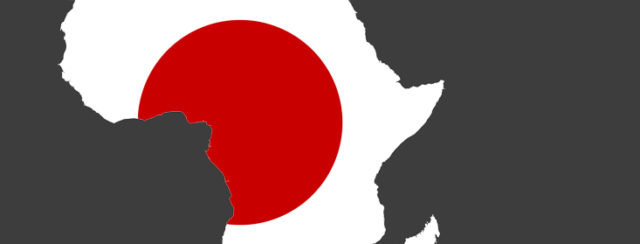
March 1-15, 2018
New patterns of economic partnerships with Africa are evolving. Japan’s quiet and systematic pitching towards the continent is significant. Japan’s flagship platform on Africa- Tokyo International Conference of African Development (TICAD) – launched in 1993, has evolved into a major global forum for mobilizing and sustaining international support for Africa’s development.
The Sixth Tokyo International Conference on African Development (TICAD-VI) held on 27 – 28 August 2016 in Nairobi, Kenya created history as the first-ever TICAD Summit to be held in the African continent .In line with other co-operation platforms like the Forum for China-Africa Co-operation, the TICAD format is also recast from a five-year to a three-year format.
Several geo-political and commercial reasons are reportedly driving Japanese forays into Africa.China’s burgeoning influence in Asia and Africa has prompted Japanese Prime Minister Abe to embark on a strategy to re-position his country to check growing dominance of its East Asian rival. Expanding electricity access is key to Africa’s development aspirations, and thus is a major pillar of Mr. Abe’s plan through investments in a range of hydro, solar, coal, gas and geothermal projects throughout the continent.
Japan is also looking at increasing its commercial footprints on the vast continent by seeking new markets encouraged by the resilient economy. Not surprisingly, Abe has reclassified Africa as “no longer an aid recipient but rather a partner for growth”. Many government programmes are being put in place, in addition to the existing ones, to promote Japan’s engagement with Africa.The agricultural development programme through Japan International Co-operation Agency (JICA) has made significant contributions to Africa’s Agri- sector. Additionally, $2 billion investments have been committed for select African countries, this year, as part of the Japanese Pan-African Initiative (JPAI).Japan’s Official Development Assistance (ODA), another major initiative, emphasises the idea of ‘”African ownership” with no “conditionalities” attached to it.
Encouraged by the government focus on Africa, Japanese industry is opening new operations and expanding existing businesses in the continent. In February 2018, the Japanese auto dealer, AA Japan, opened new offices in Nairobi to tap the growing market for used cars in East Africa.It is also expanding to other parts of Africa, specifically Zambia, Senegal etc.
As of June 2017, there are 450 Japanese companies present in Africa with the largest presence in South Africa, followed by Egypt, Kenya, Morocco and Nigeria. Their activities range from power generation to sourcing octopuses and red roses for Japanese consumers.
One cannot forget the decisive step taken by the leaders of India and Japan to join hands to set up a growth corridor linking Asia and Africa- Asia Africa Growth Corridor(AAGC).The strategy encompasses India -Japan collaboration for accelerating development in Africa together with other like-minded countries











